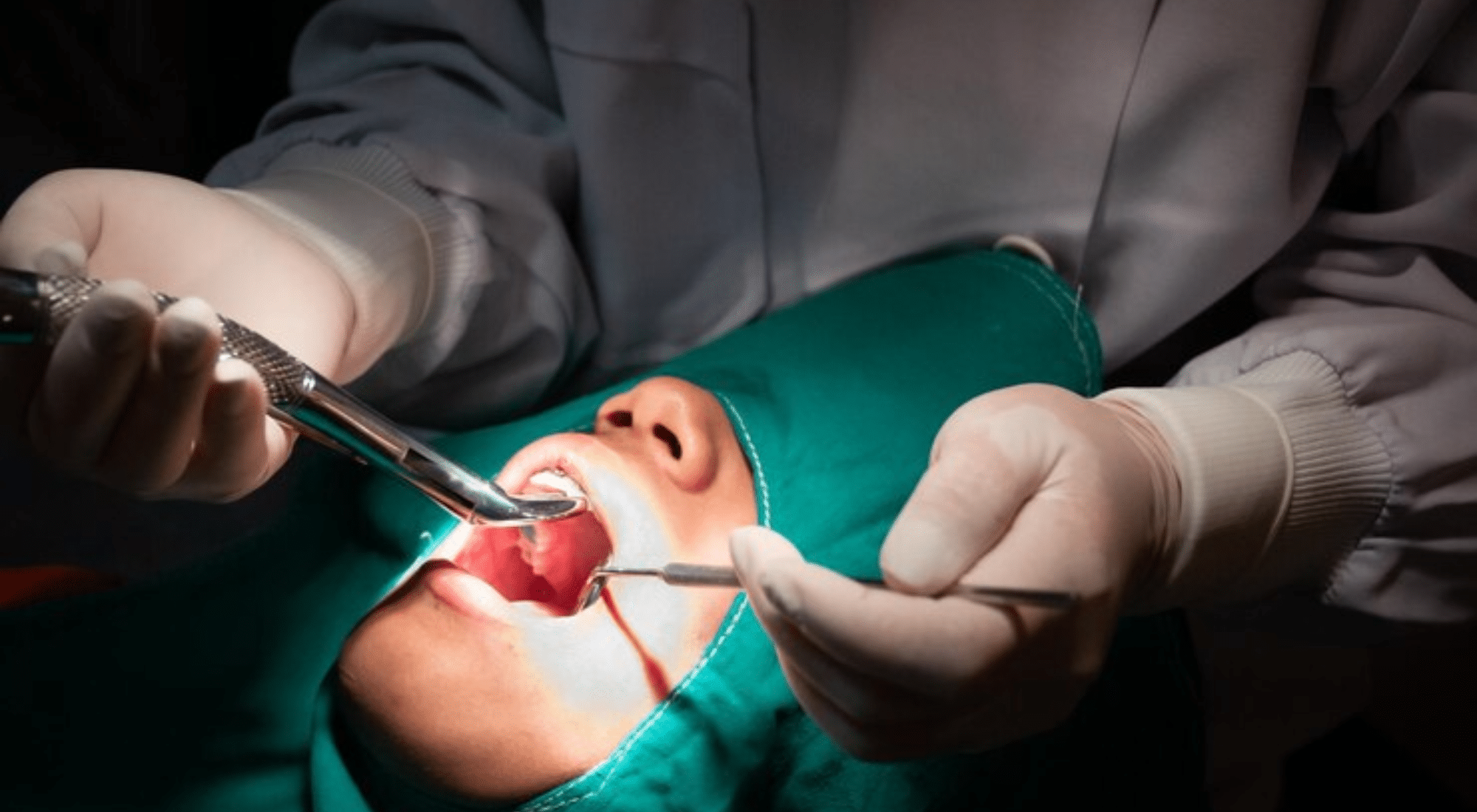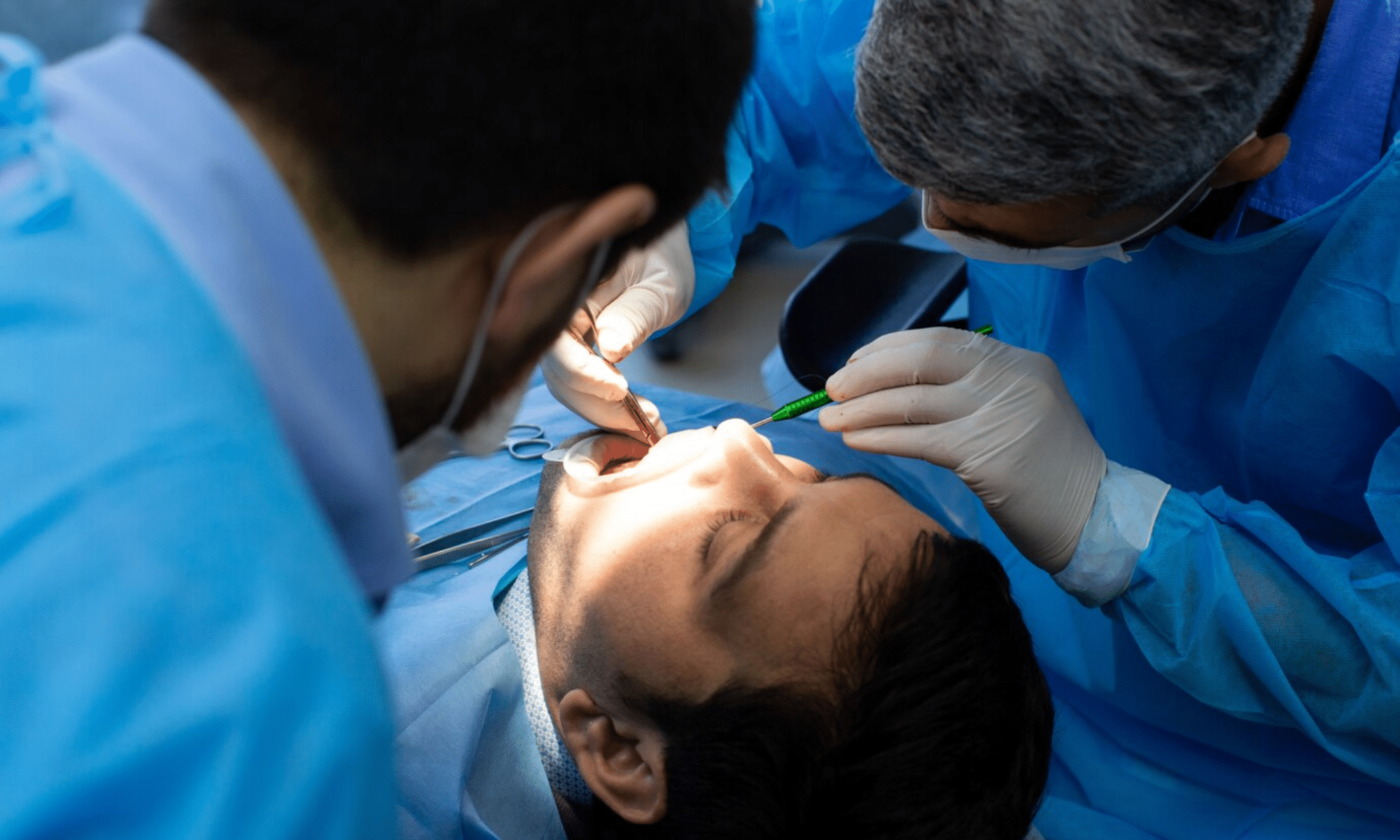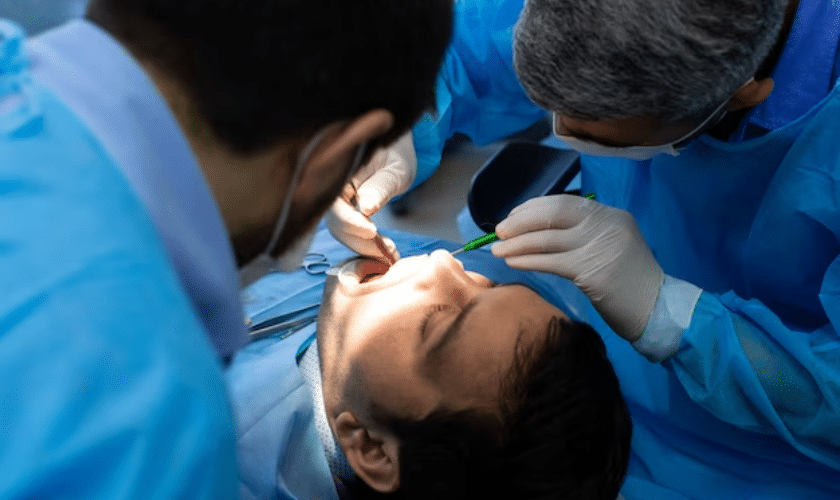
All You Need to Know About Oral Surgery: A Comprehensive Guide
Are you feeling anxious about an upcoming oral surgery? Don’t worry; we’ve got you covered! In this comprehensive guide, we’ll walk you through everything you need about oral surgery – from the different types of procedures to expect to tips for a speedy and successful recovery. Whether you’re undergoing wisdom teeth extraction or jaw realignment surgery, this guide will provide valuable insights to help ease your mind. So sit back and get ready to learn all there is to know about oral surgery!
What is Oral Surgery?
- Oral surgery is a type of dental procedure that involves the removal of a tooth or tissue. It is also used to correct a wide range of dental problems. A dentist or an oral surgeon can perform oral surgery.
- The most common type of this surgery is the extraction of wisdom teeth, the third molars that erupt in the back of the mouth. Wisdom teeth often need to be removed because they are impacted, meaning they grow in at an angle and push against other teeth. Impacted wisdom teeth can cause pain, crowding, and infection.

Types of Oral Surgery
There are many different types of such surgery, and the type that you need will depend on the problem that you are having. However, some of the most common types include:
Wisdom teeth removal: This is one of the most common types, and it is usually done when wisdom teeth start to come in and cause pain or crowding.
Tooth extractions: This type is usually done to remove a tooth that is damaged or decayed beyond repair. It can also be done to prepare for braces or other dental work.
Dental implants: Dental implants are used to replace missing teeth. They are surgically placed into the jawbone, and an artificial tooth is attached.
Bone grafting: Bone grafting is often necessary before getting dental implants. It is done to add bone to the jawbone to support an implant.
Preparing for Oral Surgery
If you’re scheduled for oral surgery, you may feel mixed emotions. You may be anxious about the procedure itself and what it will entail. On the other hand, you may also be excited to get relief from whatever oral issue you’re facing finally. Regardless of your feelings, being as prepared as possible for your surgery is important.
Here are a few things you can do to get ready:
1. Choose a comfortable outfit: You’ll want to wear something loose but easy to remove. For example, avoid anything with buttons or zippers that must be removed from your head.
2. Arrange for transportation: Once your surgery is done, you won’t be able to drive yourself home. Ensure you have a friend or family member to pick you up.
3. Prepare your recovery area: Have everything you need within reach before your surgery so you don’t have to move around much afterward. It includes items like pillows, blankets, books, TV remotes, etc.
4. Stock up on food and drinks: You’ll likely have a decreased appetite after your surgery, so make sure you have some easy-to-eat foods. Soft foods like soup, applesauce, and yogurt are good options. And remember to stay hydrated! Drink plenty of water in the days leading up to your surgery.
How to Care for Yourself After this Surgery
Surgery of any kind can be a difficult and trying experience. You do not only have to deal with the pain of the surgery itself but also the recovery period afterward. It can be especially true for oral surgery, as eating and drinking normally can be difficult when your mouth is healing. Here are some tips on how to care for yourself after oral surgery:
1. Take it easy: Rest is crucial for a successful and speedy recovery. You may need to take a few days off from work or school to recover properly.
2. Stay hydrated: Drinking fluids is important to avoid dehydration and help your body heal. Sip on water or other clear beverages frequently throughout the day. Avoid alcoholic beverages and caffeinated drinks, as they can worsen dehydration and harm healing.
3. Eat soft foods: Stick to soft foods that are easy to chew and swallow while your mouth heals. Soups, mashed potatoes, yogurt, applesauce, and bananas are all good options. Avoid hard, crunchy, or chewy foods that could irritate your healing surgical site.
4. Use ice: Applying ice to your face can help reduce swelling and pain after surgery. Wrap an ice pack in a thin towel and apply it to your cheek for 20 minutes, several times daily.
5. Keep your mouth clean: Good oral hygiene prevents infection and promotes healing. Gently brush your teeth twice a day.
Source: Dr. Sanda Moldovan
Common Questions and Answers About Oral Surgery
1. What is oral surgery?
Oral surgery is a branch of dentistry that deals with diagnosing and treating diseases, disorders, and injuries of the mouth, teeth, gums, and jaws. It can also refer to the surgical removal of teeth.
2. Who needs this surgery?
Oral surgery may be recommended for people with teeth, gums, or jaw problems. It can also correct congenital disabilities or injury-related damage to the mouth.
3. What are some common oral surgery procedures?
Some common oral surgery procedures include wisdom tooth extraction, dental implants, and bone grafting. Other procedures include biopsies, root canals, and treatment for TMJ disorders.
4. How long does it take?
The length of time required for an oral surgery procedure will vary depending on the type of procedure being performed. For example, some procedures may take only a few minutes, while others may require several hours.
Oral surgery can be intimidating, but with the right information and care, it can also be a very positive experience. Knowing what to expect before, during, and after your procedure is key to getting the best outcome possible. We hope this comprehensive guide has helped you understand more about oral surgery so that you can make informed decisions about your treatment. With the proper preparation and preparation, we are sure that your oral surgery will result in improved oral health!




